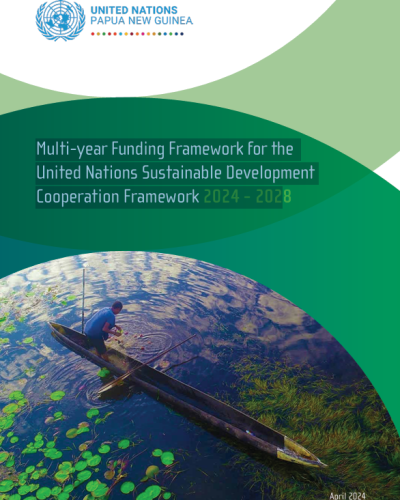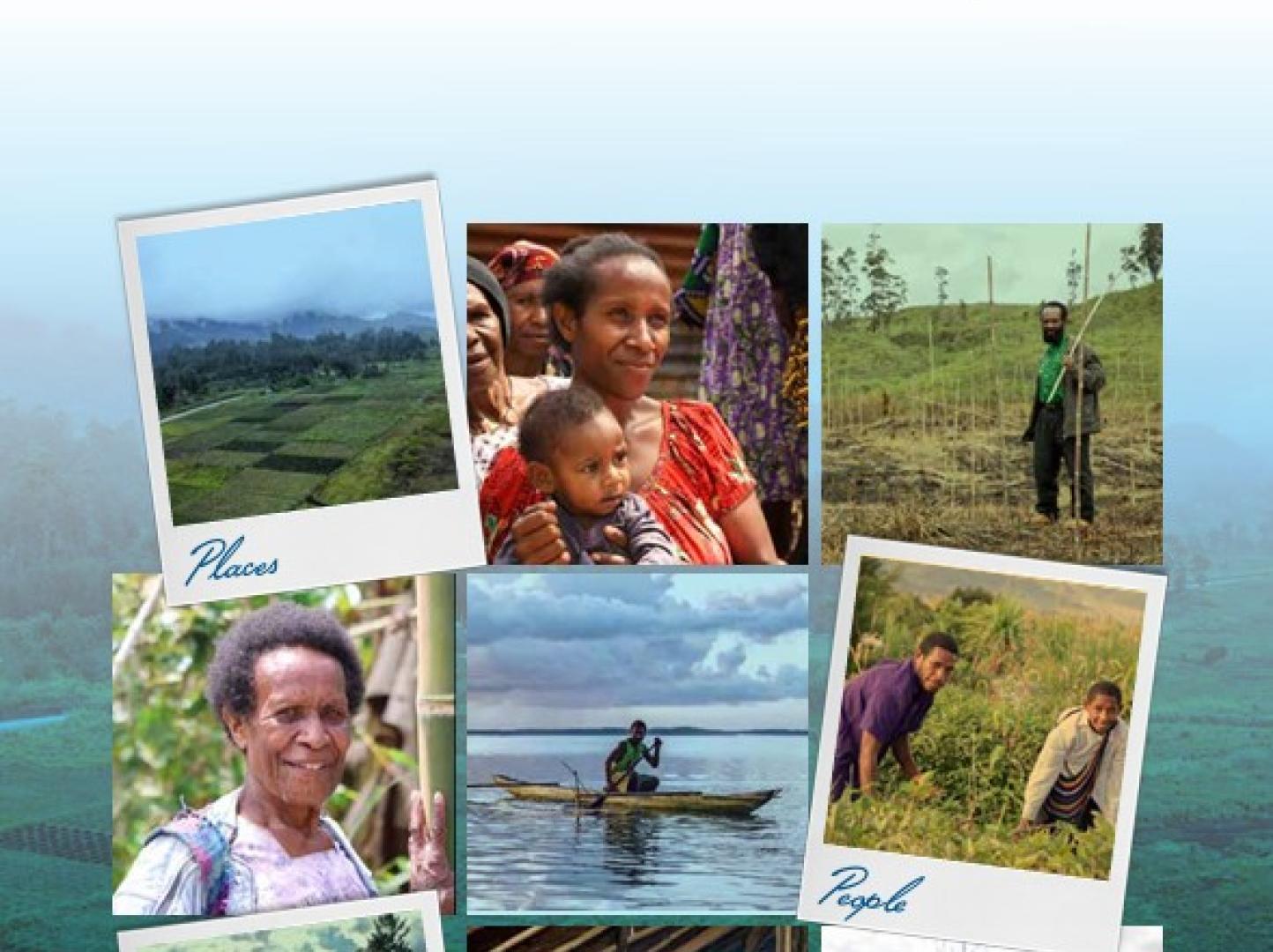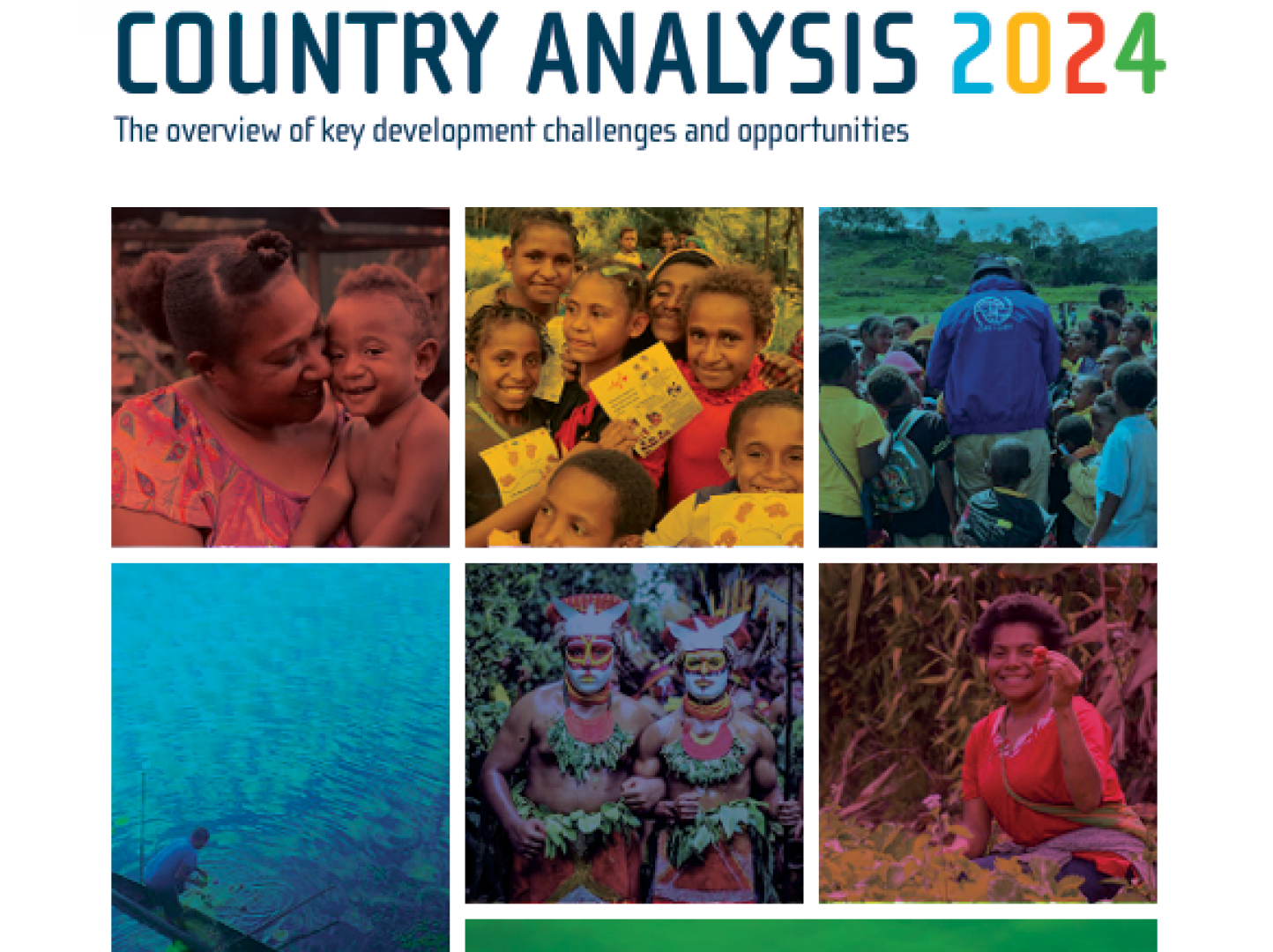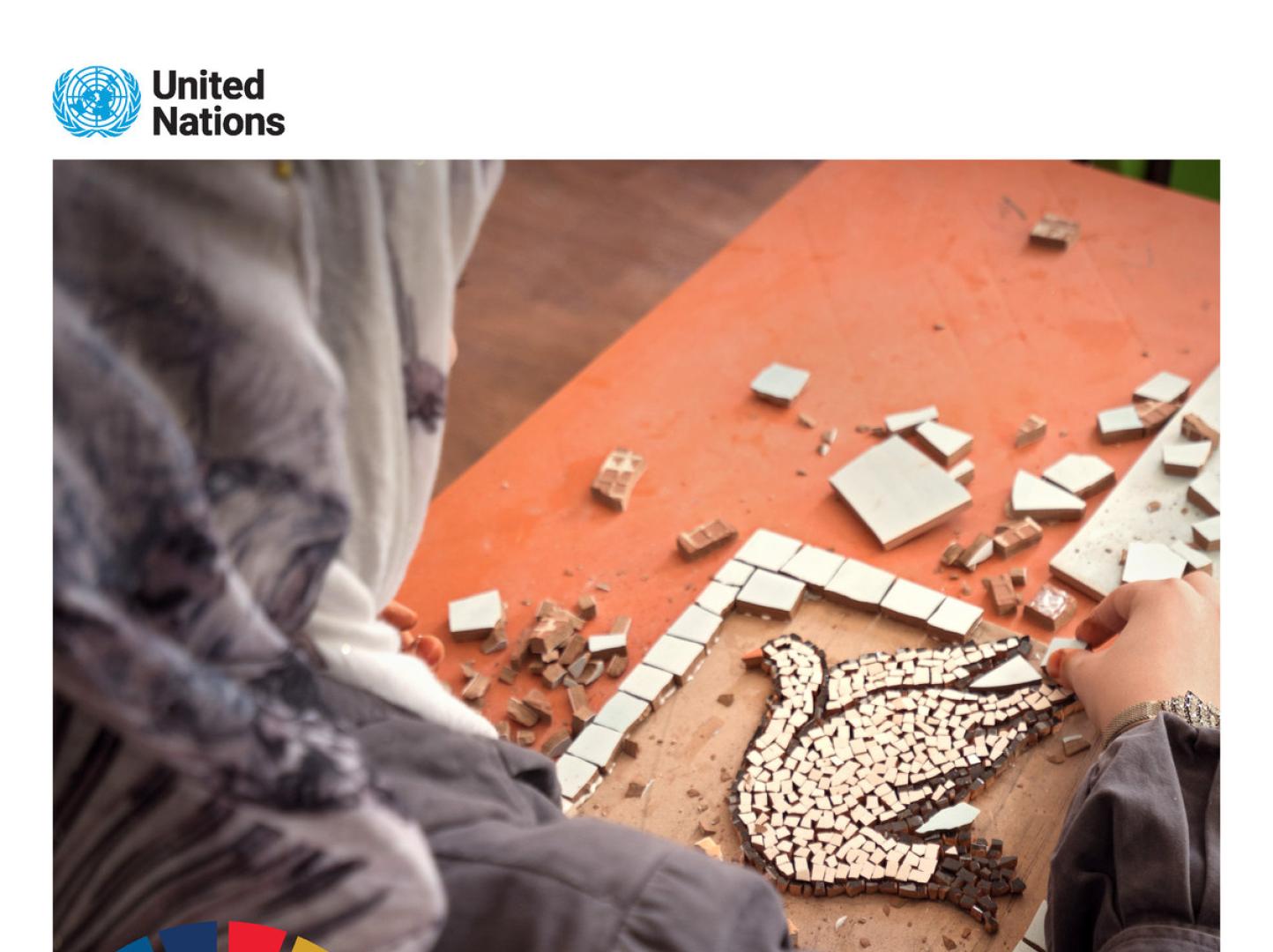Multi-year Funding Framework for the United Nations Sustainable Development Cooperation Framework 2024 - 2028

The Government of Papua New Guinea and the United Nations in Papua New Guinea signed the 2024-2028 United Nations Sustainable Development Cooperation Framework (hereinafter referred to as UNSDCF or Cooperation Framework) on 30 August 2023. The UNSDCF articulates the strategic programming framework for collaboration between the UN system and the Government of Papua New Guinea for the next five years. It is closely aligned with the Government of Papua New Guinea’s Medium-term Development Plan IV and reflects the country’s commitment to the 2030 Agenda for Sustainable Development and international human rights obligations. The five strategic priorities of the UNSDCF 2024 – 2028 and their respective outcome statements are:
1. Equality for Women and Girls: By 2028, women and girls in Papua New Guinea, especially the most marginalized and vulnerable, exercise their rights and agency and live a life free from all forms of discrimination and violence.
2. Governance, Peace, and Social Cohesion: By 2028, people in Papua New Guinea, especially the most marginalized and vulnerable, participate in and benefit from more accountable, gender-responsive, inclusive and transparent governance that promotes peace, security, equality and social cohesion.
3. Inclusive Human Development: By 2028, people in Papua New Guinea, especially the most marginalized, benefit from gender sensitive, shock responsive rights-based and quality basic and social services and equitably realize and unleash their full potential to meaningfully contribute to PNG development.
4. Sustainable Economic Transformation: By 2028, people in Papua New Guinea, especially the most vulnerable and marginalized, benefit from improved and sustainable livelihoods and expanded access to diversified economic opportunities that deliver inclusive and green growth.
5. Environment and Climate Change: By 2028, people in Papua New Guinea, especially the most marginalized and vulnerable, benefit from equitable and participatory access to climate resilient services that improve livelihoods and protect natural resources. The UNSDCF covers two concepts that are distinct yet mutually reinforcing: (1) ‘Financing the SDGs’ and (2) ‘Funding the UNSDCF. The concept of ‘Financing the SDGs’ is based on the Addis Ababa Action Agenda’s (AAAA_Outcome.pdf (un.org)) call for “nationally owned sustainable development strategies, supported by integrated financing frameworks” to achieve the 2030 Agenda, i.e., mobilizing and aligning all sources of finance to implement national plans to achieve the SDGs. The concept of ‘Funding the Cooperation Framework/ UNSDCF’ refers to the traditional concept of mobilizing resources through UN accounts in order to close budgetary gaps of the UNSDCF as the UN’s primary planning and implementation instrument to contribute to the achievement of the 2030 Agenda at the country level. This means that the Funding Framework emphasizes the allocation of UN resources in the context of much larger flows. UN resources play a complementary and catalytic role in order to: (i) address barriers to SDG financing; (ii) help facilitate dialogue with diverse partners and enable governments identify new sources of SDG financing (that do not go through the UN); and (iii) better align existing financial resources with national SDG plans.





















